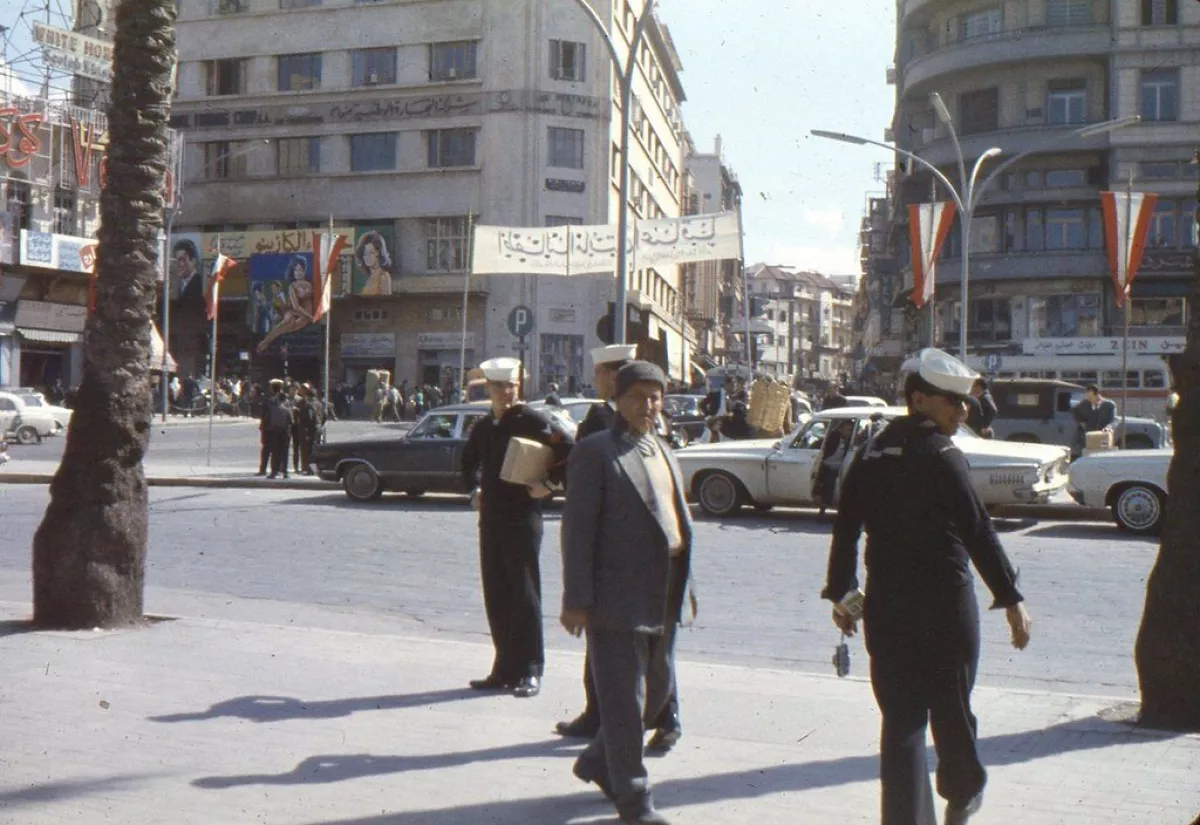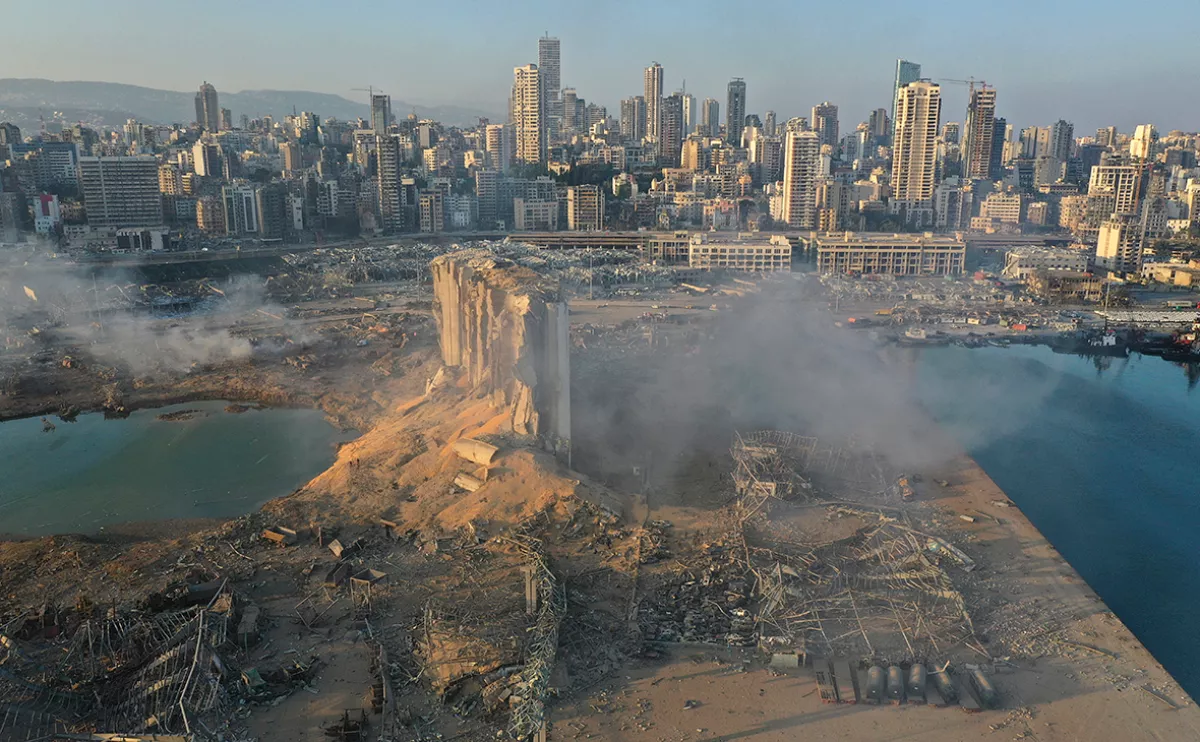Lebanon: path to catastrophe Sombre legacy of French colonialism
Several decades ago, a myth prevailed among the intelligentsia of Eastern Europe about a "small country" where peace, order, and universal prosperity reigned. Proponents of this mythology were likely inspired by the image of Switzerland or Monaco, forgetting that many "small countries" exist whose daily lives are filled with endless crises, poverty, and turmoil. One of the most well-known examples is Lebanon, which has transformed from the "Switzerland of the Middle East" into a failed state, a battleground for neighbouring powers and rival factions.
Once, during the time of the Ottoman Empire, the lands that today comprise Lebanon, Syria, Jordan, and Israel formed a single economic and political region known as "Greater Syria." However, after World War I, part of these lands came under French mandate. In an effort to strengthen their influence, particularly through the numerous Maronite Christians living along the Mediterranean coast, the French established a separate administrative unit in 1920 called Greater Lebanon, where the Lebanese Republic was created in 1926.
Until World War II, Lebanon remained in colonial dependence on France, and it was only in 1943 that the country achieved independence. Unfortunately, the internal political system established by Paris continued to operate in Lebanon in the following decades. As it turned out, this system was a ticking time bomb planted under the new Middle Eastern state.
In an effort to maintain power among Christians, the French established a system whereby the Lebanese president had to be a Christian, and the prime minister a Sunni Muslim. This system worked while Christians constituted the majority of the population in Lebanon. Against the backdrop of neighbouring countries shaken by coups and civil wars, this Middle Eastern nation seemed like an island of stability. Wealthy individuals from neighbouring Arab countries invested their money in Lebanese banks, and European tourists flocked to the Lebanese mountains for skiing, which contributed to the country's image as the "Switzerland of the Middle East." However, the country's prosperity proved to be short-lived.

This was primarily due to a shift in the demographic balance within the country. After the 1948 war, tens of thousands of refugees from neighbouring Palestine arrived in Lebanon. Although they did not receive civil rights, their presence had a significant destabilizing effect on the situation in the country. In 1958, an attempt by Christian president Camille Chamoun to rewrite the constitution to extend his term sparked protests from Muslims. The Lebanese government was compelled to seek assistance from the United States. The American Marines quelled the protests, but this was the first warning of the impending crisis.
In the mid-1970s, a full-scale civil war broke out in the country, with Christian Phalangist militias, Palestinian armed groups, and Shiite militias fighting against each other. External forces also intervened in the conflict, which lasted for over fifteen years. Periodically, parts of Lebanon were occupied by Syrian and Israeli troops, and during the 1980s, French and American contingents were deployed in the country.
In 1990, the civil war officially came to an end, but peace and political stability never returned to Lebanon. Except for a brief period of economic growth in the 1990s, the country’s history has been marked by a succession of economic and political crises.
Rafic Hariri, a Saudi businessman of Lebanese descent who became the Prime Minister of the country, attempted to pull Lebanon out of the crisis. He initiated a massive reconstruction project in Beirut and attracted multimillion-dollar investments from Gulf states. The economy began to rise from the ashes, but this came at the cost of increasing national debt, which reached $16 billion by the early 2000s—an astronomical amount for a small country. A significant portion of these funds went towards financing corrupt connections and clientelistic relationships among sectarian political clans.
In 2005, Rafic Hariri was assassinated, and following his death, the situation in Lebanon deteriorated rapidly. In 2006, a war broke out between the Hezbollah group and Israel, resulting in hundreds of casualties and the destruction of many infrastructure facilities. After the outbreak of the civil war in neighbouring Syria, Lebanon became a transit point for thousands of refugees fleeing the violence. Today, the country, with a population of 6 million, is home to two million refugees. In 2019, Lebanon was struck by a severe economic crisis. In 2020, the Beirut port explosion of the ship Rhosus, which was carrying ammonium nitrate, resulted in numerous casualties and massive destruction in the heart of the Lebanese capital.

According to a 2021 report by the World Bank, " Lebanon is enduring a severe and prolonged economic depression… the economic and financial crisis is likely to rank in the top 10, possibly top 3, most severe crises episodes globally since the mid-nineteenth century. In the face of colossal challenges, continuous policy inaction and the absence of a fully functioning executive authority threaten already dire socio-economic conditions and a fragile social peace with no clear turning point in the horizon."
By 2022, the daily life of what was once a prosperous Middle Eastern country resembled scenes from a post-apocalyptic world. Electricity in Lebanon is provided for only a few hours a day, forcing people to invest in generators. Water shortages have become a common issue. While it is relatively safe to travel in Lebanon when there isn’t a war, checkpoints are positioned every few kilometres on the roads, streetlights do not work, and in cities, countless bank offices and hotel buildings are shuttered with metal grilles. Even buying souvenirs in Lebanon has become a challenging task.
During the era of the "Switzerland of the Middle East," the country was seen as an ideal "post-industrial society." Nothing was ever produced here; the Lebanese relied on tourism and banking. A staggering 87% of the country’s GDP came from the service sector, which employed 65% of the population. The bankruptcy of banks and the cessation of tourism have devastated the economy.
According to Russian director Andrei Molodykh: "Lebanon has changed significantly. Once, it was a very—I'd say—optimistic country. People in the streets, in shops, and in cafes were positive and kind-hearted. They looked confidently towards the future. Now, people there have become very embittered. This is not typical for the Lebanese."

Driving through Lebanon, you realize that the civil war in this country is not over but merely postponed. The posters on the walls and the slogans make it easy to identify which neighbourhood you are in—whether it's Christian, Sunni, or Shiite. Anti-tank barricades line the roads, ready to block highways at a moment's notice. Access to affluent neighbourhoods is restricted by concrete barriers. The bomb planted by the French under Lebanon has not disappeared. The residents of this country primarily identify not as Lebanese, but as members of one religious sect or another. Periodic clashes occur between these groups.
Today, Lebanon is experiencing a new tragedy. The country is caught in a confrontation between Hezbollah and Israel. Approximately 900,000 Lebanese have been forced to leave their homes due to the ongoing hostilities. Many residential buildings and infrastructure have been destroyed. Meanwhile, the Lebanese government and military are unable to exert any influence over the unfolding events and passively observe what is happening.
Thus, Lebanon serves as a sombre example of the legacy of French colonialism, which created artificial borders in the region and established a political system in Lebanon that catered to the immediate interests of France in the early 20th century, undermining the political stability of the country for many years to come.








